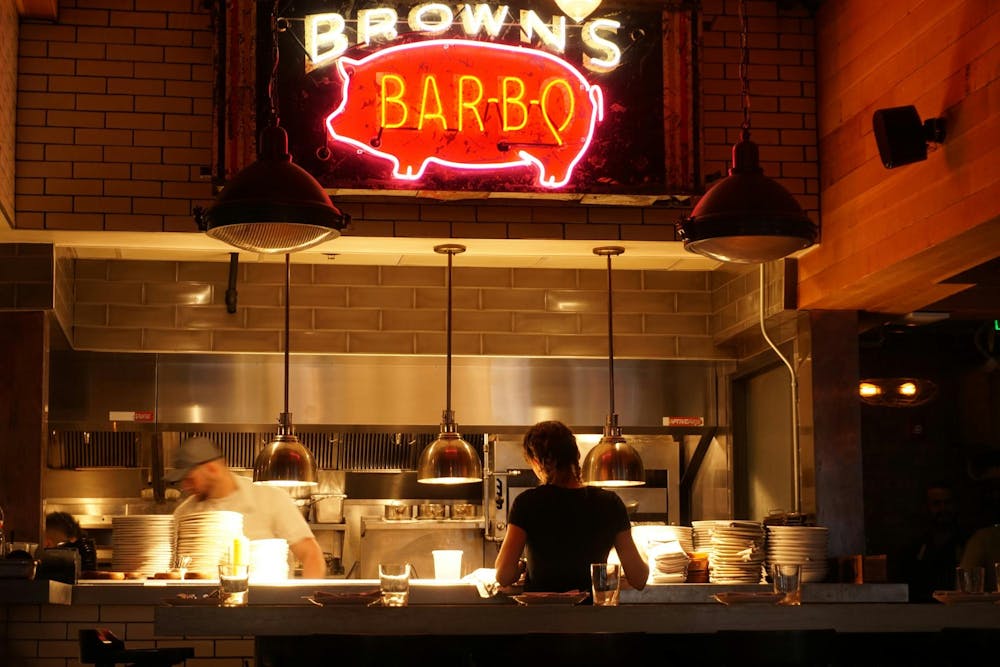This spring, Notre Dame students compete with thousands of kids from other prestigious schools for coveted cubicles at prestigious consulting groups, Wall Street investment banks and white-shoe law firms. These internships give us a feel for the workplace we will enter after graduation, and they offer important networking and skill-building opportunities for young professionals. This is what is expected of us if we intend to be strong job candidates after graduation.
I don’t doubt the value of a great internship on a resume. I do, however, dislike our habit of describing internships as real-life experience. I’ve had an internship – of the stuffy cubicle, coffee-grabbing, Excel spreadsheet variety – and I learned a lot there. But the jobs that have taught me the most about real life didn’t have any of these things. After four years at Notre Dame and plenty of wonderful academic experiences here, I think I learned the most about real life at the crummy minimum-wage jobs I got when I didn’t have an internship.
Seniors remember that we had a 10-week winter break in 2020-2021 because of COVID-19. During that time, I got a job at the only place near home that was hiring during the pandemic: the BUF-5 Amazon Warehouse in Buffalo, NY. For eight weeks, I stood at a conveyor belt and processed returns. This meant opening packages people had returned, checking if the item was damaged and repackaging items that were ready to be resold. Tests for damage included the “sniff test,” in which I was asked to sniff items that may have been worn or used (yes, that includes undergarments).
At Amazon, I was not allowed to sit down, listen to music or chat with my neighbor. I was constantly reminded of being behind my hourly quota. I worked for six hours each day with one 20-minute break, during which all the workers sat in complete silence at desks spread six feet apart. Many of my coworkers had disabilities or did not speak English. Most of them worked twelve-hour shifts and took the bus home late at night. I never learned any of their names. At Amazon, I learned about real labor – the kind of labor Notre Dame students are fortunate enough to avoid, the kind that exhausts the working poor.
The following summer, I coached a swim team at my local pool. Along with a few other poorly qualified 18-year-olds, I was essentially given guardianship over thirty rowdy second-graders for an hour each day. People think that being good with kids is a skill that can’t be taught, but I disagree. Patience, enthusiasm and dealing with an angry parent or a kid in tears – these are learned skills and coaching prepared me to deal with frustration and chaos in the real world.
Probably my best menial-labor “internships,” though, were the two jobs I’ve worked in the restaurant industry. The same summer I coached swimming, I spent my afternoons bussing tables at a rowdy lakefront restaurant in Buffalo. I spent my shifts running around – literally, running – flipping endless tables, delivering endless meals and overhearing endless swears from the bartender. It’s said that everyone should work in the service industry at least once, and I couldn’t agree more. One night, I saw a young waitress sobbing because a drunk couple had escaped without paying their $200 bill, leaving the waitress humiliated and without a tip. I saw my manager open his wallet and pay her the tip himself. I learned what it meant to be a good boss that day.
The other restaurant I worked at was an upscale Italian place in Chicago run by two Italian brothers. I was doing service for a nonprofit in the area, and I worked as a hostess on the side for some extra cash. Hostessing taught me all the communication skills associated with customer service, but more importantly, it taught me how to take criticism. Like many Notre Dame students, I grew up accustomed to praise, and this made me oversensitive to criticism from teachers, coaches and employers. You can imagine my shock the first time my manager shouted at me for doing my job wrong. My managers were impatient and ran a tight ship. They didn’t care about my writing talents or first-rate education. It wasn’t fun at the time, but now I am much better equipped to keep my cool and take a negative appraisal in stride.
All this is to say that we don’t give enough credit to the odd gigs we work in high school and college. If you didn’t get your dream internship this summer, don’t look down your nose at the jobs we inaccurately call “unskilled labor.” Walk into a restaurant, ask if they’re hiring, and you might learn more than that coveted internship was ever going to teach you.
Rose is a senior from Buffalo, NY with majors in economics and the Program of Liberal Studies. Her writing interests include ethics, campus culture and the intersection of economics, politics and philosophy. When she's not writing, you can find her reading on the 10th floor of the library, losing intramural basketball games or working at the Law School. You can contact Rose by email at rquiniaz@nd.edu.










